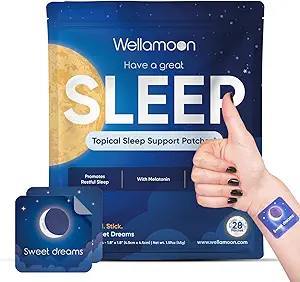Understanding the Link Between Sleep Deprivation and Depression
- Kendra Horne
- May 28, 2025
- 4 min read
Updated: Jun 18, 2025
Introduction
Whenever my depression strikes, my sleep habits and patterns plummet significantly, leading to a cycle that feels almost inescapable. Last night, for instance, I found myself unable to fall asleep until close to 2 or 3 AM, a situation that has become all too familiar. The challenge I face primarily revolves around the difficulty of initiating sleep; once I finally manage to drift off, I often struggle to wake up in the morning, creating a frustrating loop that exacerbates my mental health struggles.
This cyclical nature of disrupted sleep raises an important question: why does this happen, and what impact does it have on my mental health and overall well-being?

The Connection Between Depression and Sleep Disturbances
Depression and sleep disturbances are deeply interconnected, often creating a cycle where one worsens the other. Here’s how they influence each other:
How Depression Affects Sleep
Insomnia – Many people with depression struggle to fall asleep or stay asleep, leading to exhaustion.
Hypersomnia – Some experience excessive sleepiness, sleeping longer but still feeling fatigued.
Disrupted Sleep Cycles – Depression can reduce restorative sleep, making rest less effective.
The Impact on Daily Life
The repercussions of poor sleep extend beyond mere fatigue. When I finally do manage to sleep, the quality of that sleep is often subpar, resulting in feelings of grogginess upon waking and a persistent headache that lingers throughout the day. This not only affects my productivity but also my mood and interactions with others. I find myself irritable and less engaged, which can strain relationships, especially with my husband.
Coping Mechanisms and Strategies
When I cannot sleep, I have developed a few coping mechanisms to help manage my restlessness. I often end up getting out of bed and engaging in activities such as reading, writing, or, perhaps less wisely, working late into the night. I know that these activities are not ideal for promoting good sleep hygiene, but the thought of simply lying there, tossing and turning, feels unbearable. The act of doing something—anything—provides a temporary distraction from the anxiety of being awake when I desperately want to sleep.
Breaking the Cycle and Seeking Solutions
So, what can be done to address the challenges of sleep disruption caused by depression?
Depression and sleep disturbances often create a self-perpetuating cycle, poor sleep worsens depression, and depression makes restful sleep harder to achieve. Breaking this cycle requires intentional strategies that address both mental health and sleep quality.
Prioritize Sleep Hygiene - Creating a consistent bedtime routine helps regulate sleep patterns and improve rest quality. Some key habits include:
Setting a Regular Sleep Schedule – Going to bed and waking up at the same time daily, even on weekends.
Limit Screen Time - Limiting screen time before bed is important because the blue light from devices disrupts melatonin production, making it more difficult to sleep.
Creating a calming nighttime routine – Reading, meditation, or gentle stretching can signal the brain that it’s time to wind down.
Seek Professional Support - Depression-related sleep disturbances often require medical or therapeutic intervention. Some practical approaches include:
Medication & Supplements – Consulting a doctor about sleep aids or antidepressants that support better rest.
Practice Relaxation Techniques - Stress and anxiety can make it difficult to sleep, so calming the nervous system is essential. Some effective techniques include:
Deep breathing exercises – Slows heart rate and promotes relaxation. Consider adding essential oils, like lavender, chamomile, or peppermint, to aid in breathing exercises and a restful night's sleep.
Address Lifestyle Factors - Daily habits play a significant role in sleep quality and mental health. Some helpful adjustments include:
Regular movement– Gentle exercise improves sleep and boosts mood.
Balanced nutrition – Avoiding excessive caffeine and alcohol supports better sleep cycles.
Sunlight exposure – Natural light helps regulate circadian rhythms and improve energy levels.
My Favorite Sleep Tools
Conclusion
Improving sleep and managing depression is a gradual process that requires patience and dedication, but small, consistent changes can have a profound and lasting impact on an individual’s overall quality of life. It is essential to recognize that both sleep and mental health are interconnected; thus, focusing on one can often lead to improvements in the other.
Prioritizing adequate rest is not merely about increasing the number of hours spent asleep but also involves creating an environment conducive to relaxation and rejuvenation. This includes establishing a calming bedtime routine, minimizing screen exposure before sleep, and ensuring a comfortable, dark, and quiet sleep environment.
Let's continue the conversation in the comments. What's your favorite sleep hack?
Additional Reading on Drifting Towards Simplicity
Additional Sleep Resources
The content on Drifting Towards Simplicity is for informational purposes only and is not a substitute for professional mental health advice, diagnosis, or treatment—please seek support from a licensed professional if needed.
Some of the links on Drifting Towards Simplicity are affiliate links, which means I may earn a small commission, at no extra cost to you, if you purchase them. We only recommend products that align with our values of intentional living, mental well-being, and simplicity. Your support helps us continue creating meaningful content. Thank you!









Comments